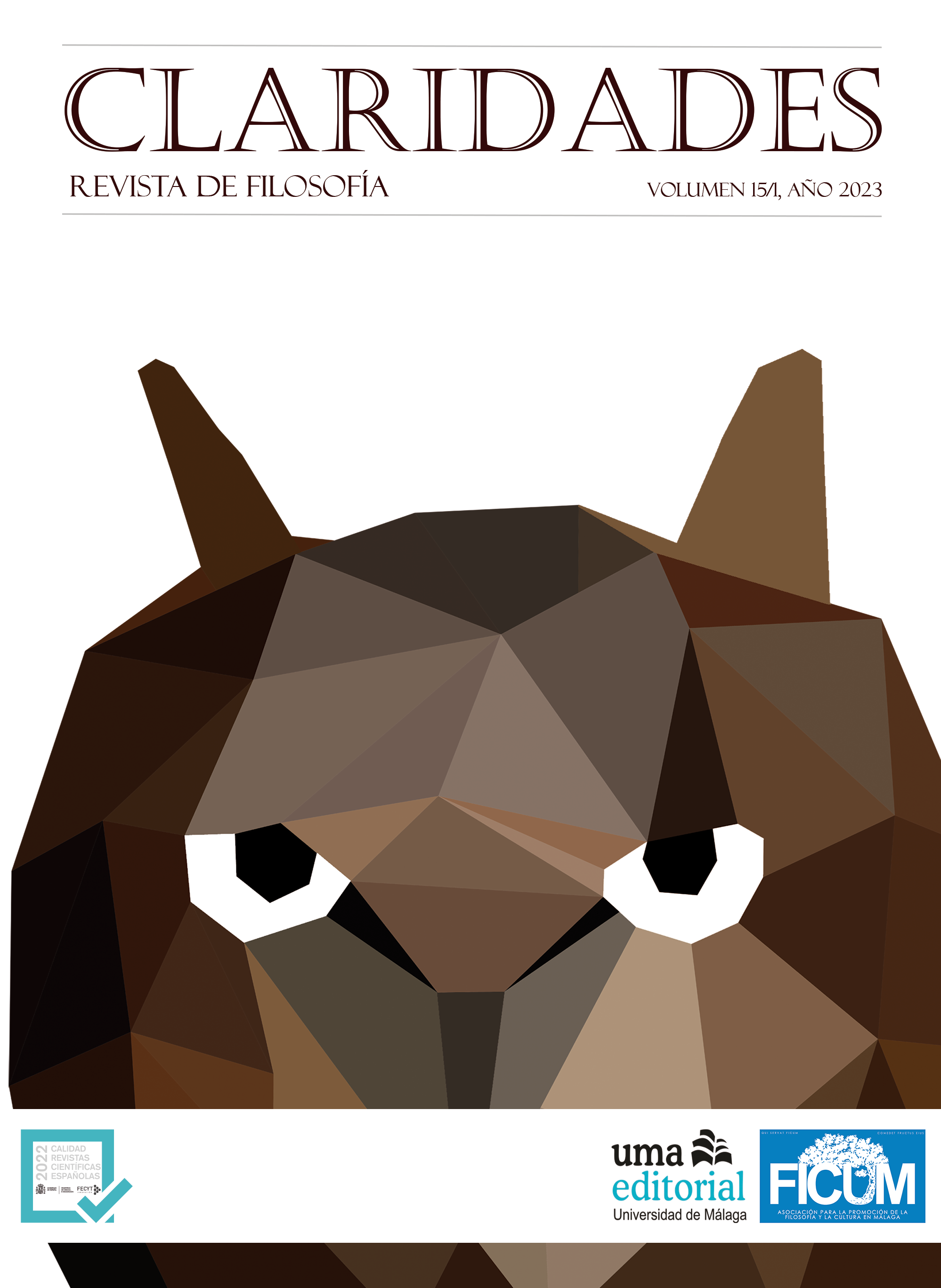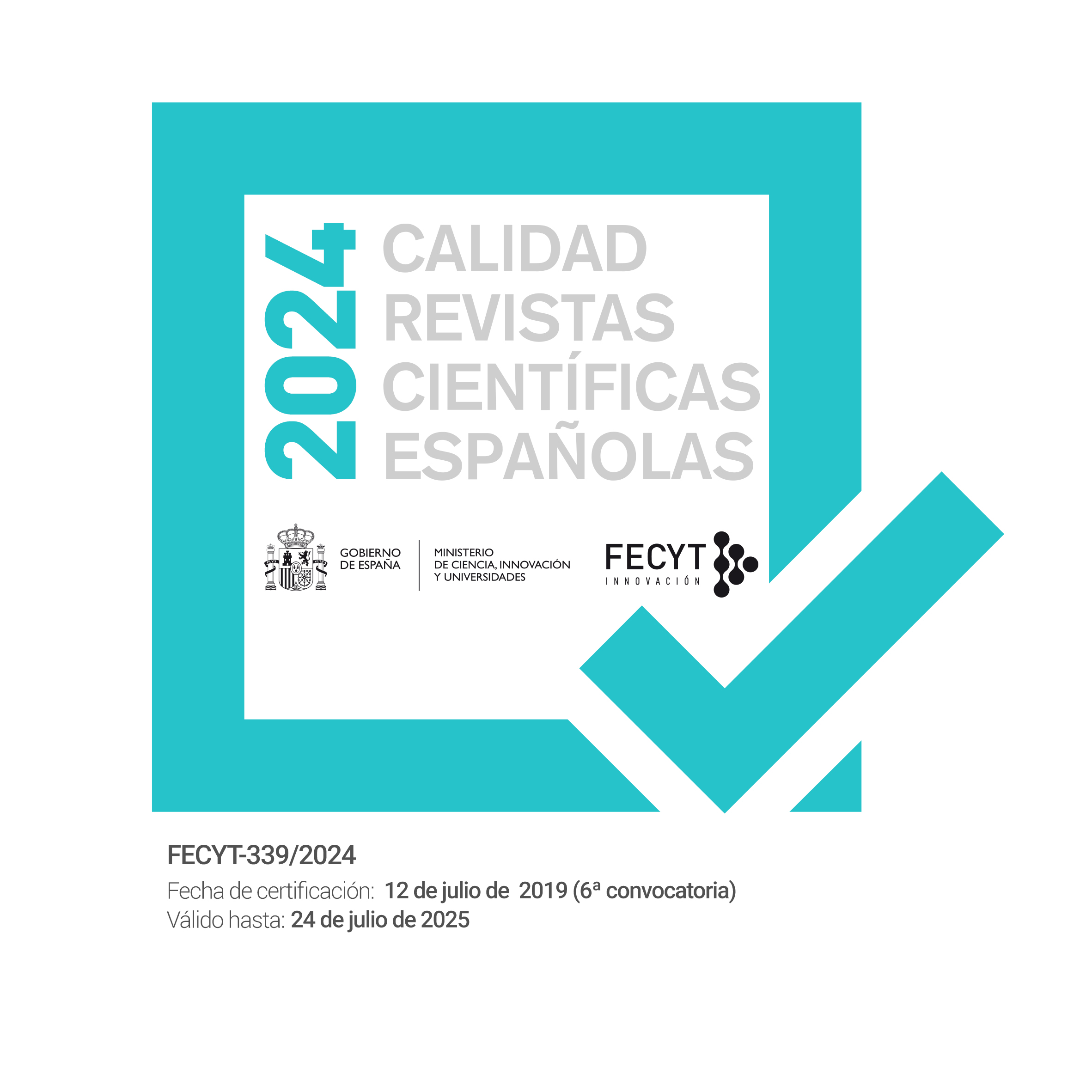The just character of States and the development of human natural dispositions according to Kant
DOI:
https://doi.org/10.24310/Claridadescrf.v15i1.13959Keywords:
Kant, State, constitution, human dispositionsAbstract
Kant considers that the specific dispositions of the human species can only fully develop in one State with a just constitution. Such dispositions are the technical, the pragmatic and the moral. We will show in which way the existence of a just State fosters and assures the development of those dispositions. In Idea for a Universal History with a Cosmopolitan Aim (1784), Kant holds that a totally just constitution is only an idea of practical reason to which we must asymptotically approach. The integral realization of this constitution is impossible. On the other hand, in Toward Perpetual Peace (1795), Kant presents a conception of republics as just, achievable and peaceful States. While in the text of 1784 the moral disposition is a condition of possibility of a just State, in the work of 1795 a republican State is a condition of the promotion of the morality of the citizens.
Downloads
Metrics
Publication Facts
Reviewer profiles N/A
Author statements
Indexed in
-
—
- Academic society
- N/A
- Publisher
- Asociación para la promoción de la filosofía y la cultura en Málaga (FICUM) y UMAEditorial
References
Arango, R. (2013): «Republicanismo kantiano», Ideas y valores, 62 (S1), pp. 49-72.
Bielefeldt, H. (1997): «Autonomy and Republicanism: Immanuel Kant’s Philosophy of Freedom», Political Theory, 25 (4), pp. 524-558.
Colomer, J. L. (1994): «Algunos apuntes sobre Kant y la libertad política», Doxa. Cuadernos de Filosofía del Derecho, 15-16, pp. 581-198.
Guelfi, F. (2017): «Consideraciones en torno a la idea de república en Kant: entre el contrato originario y la Ilustración», Sociales Investiga, 4, pp. 159-166.
Kant, I. (1900ss.): Kant’s gesammelte Schriften. Berlín y otros: Walter de Gruyter y predecesores. (Ed. Deutsche –anteriormente Königlich Preußische– Akademie der Wissenschaften). [Akademie-Ausgabe = AA].
Kant, I. (1981): La religión dentro de los límites de la mera razón. Madrid: Alianza. Trad F. Martínez Marzoa. [RGV].
Kant, I. (2003): Pedagogía. Madrid: Akal. Trad. L. Luzuriaga y J. L. Pascual. [Päd].
Kant, I. (2004): «Sobre el uso de principios teleológicos en la filosofía», Logos. Anales del Seminario de Metafísica, 37, pp. 7-31. Trad. N. Sánchez Madrid. [ÜGTP].
Kant, I. (2013a): «Contestación a la pregunta: ¿Qué es la ilustración?», en R. R. Aramayo (ed.), Kant, Immanuel. ¿Qué es la Ilustración? Y otros escritos de ética, política y filosofía de la historia. Madrid: Alianza, pp. 85-98. Trad. R. R. Aramayo. [WA].
Kant, I. (2013b): «Idea para una historia universal en clave cosmopolita», en R. R. Aramayo (ed.), Kant, Immanuel. ¿Qué es la Ilustración? Y otros escritos de ética, política y filosofía de la historia. Madrid: Alianza, pp. 99-125. Trad. R. R. Aramayo y C. Roldán Panadero. [IaG].
Louden, R. B. (2014): «Cosmopolitical unity: the final destiny of the human species», en A. Cohen (ed.), Kant’s Lectures on Anthropology. A Critical Guide. Cambridge: Cambridge University Press, pp. 211-229.
Shell, S. (2015): «Anlage», en M. Willaschek, J. Stolzenberg, G. Mohr y S. Bacin (eds.), Kant-Lexikon. Berlín: De Gruyter, pp. 96-97.
Velasco Gómez, A. (2005): «La concepción republicana de Kant», Episteme (Caracas), 25 (2), pp. 109-122.
Wilson, H. L. (2006): Kant’s Pragmatic Anthropology. Its Origin, Meaning and Critical Significance. Albany (NY): State University of New York Press.
Wood, A. W. (2009): «Kant’s Fourth Proposition: the unsociable sociability of human nature», en A. Oksenberg Rorty y J. Schmidt (eds.), Kant’s Idea for a Universal History with a Cosmopolitan Aim. A Critical Guide. Cambridge: Cambridge University Press, pp. 112-128.
Downloads
Published
How to Cite
Issue
Section
License
Esta revista provee acceso libre inmediato a su contenido bajo el principio de hacer disponible gratuitamente la investigación al público. Todos los contenidos publicados en Claridades. Revista de Filosofía, están sujetos a la licencia Creative Commons Reconocimento-NoComercia-Compartirigual 4.0 cuyo texto completo puede consultar en <http://creativecommons.org/licenses/by-nc-sa/4.0>
Es responsabilidad de los autores/as obtener los permisos necesarios de las imágenes que están sujetas a derechos de autor.
Los autores/as cuyas contribuciones sean aceptadas para su publicación en esta revista conservarán el derecho no exclusivo de utilizar sus
contribuciones con fines académicos, de investigación y educativos, incluyendo el auto-archivo o depósito en repositorios de acceso abierto de cualquier tipo.
La edición electrónica de esta revista esta editada por la Editorial de la Universidad de Málaga (UmaEditorial), siendo necesario citar la procedencia en cualquier reproducción parcial o total.

















6.png)
